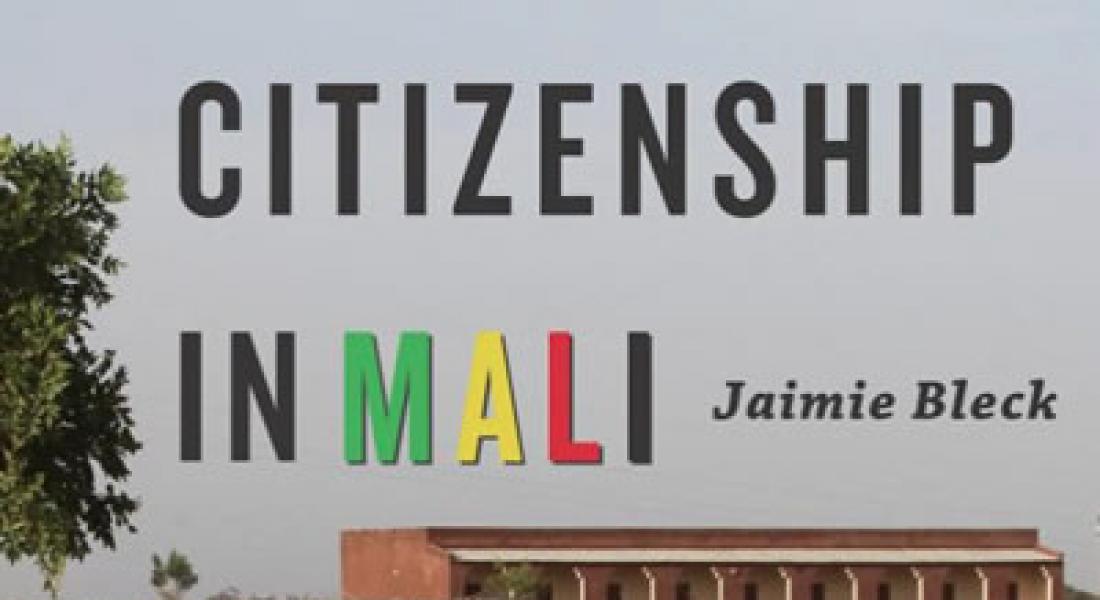
In a new book, Education and Empowered Citizenship in Mali (Johns Hopkins University Press, 2015), Faculty Fellow Jaimie Bleck explores the relationship between schooling, political knowledge, and political participation in Mali, where access to education nearly tripled in the two decades following the country’s 1991 transition to multiparty democracy.
Most African countries have focused on education as a strategy to improve human development, says Bleck, but in her research she took a different perspective, investigating how education contributes to building democratic citizenship and engagement. She explores the effect of different types of schooling—public, private, secular, and religious—on the political knowledge and engagement of both students and their parents in Mali, where citizens are skeptical about electoral politics and the state more generally.
“I find that education in any school type empowers citizens to learn more about politics,” she says. “The Malian schooling expansion has created more capable citizens by heightening individuals’ ability to process and evaluate political information.”
Education also appears to connect parents more closely with the state and bolster their political participation. Bleck finds that parents who send their children to public school are more likely to engage in electoral politics than other citizens. She also demonstrates that increasing levels of education are associated with increases in more engaged forms of political participation, including campaigning, willingness to run for office, and contacting government officials.
The research has clear implications for policy, both in Mali, now entering its second democratic transition, and in other developing countries.
“The evidence demonstrates that education can foster political empowerment, both as a way to gain more knowledge about politics and as a boost to internal efficacy,” Bleck says, calling education a prime example of what social scientists call “welfare services.”
“Based on my research, I suggest that the newly elected government use expanded service provision as a tool to generate legitimacy and spur citizen engagement. My findings highlight a policy feedback effect: citizens exposed to state welfare services will be more willing to engage with the state at the ballot box. Exposure to concrete proof of the state’s capacity can help citizens to overcome skepticism about democracy and to make their voices heard.”
 The book grows out of Bleck’s Cornell University PhD dissertation, which garnered her the 2011 Lynne Rienner Award for Best Dissertation in African Politics from the American Political Science Association’s Africa Politics Conference Group.
The book grows out of Bleck’s Cornell University PhD dissertation, which garnered her the 2011 Lynne Rienner Award for Best Dissertation in African Politics from the American Political Science Association’s Africa Politics Conference Group.
She draws on original data from a year of fieldwork in Mali, including surveys of 1000 citizens, exit polls during municipal elections, interviews with students, parents, and educators, and government schooling data, as well as interviews with Malian educators and government officials.
“Bleck presents a thought-provoking study of the political implications of expanded education in Africa’s democratizing countries,” says Leonardo Arriola of the University of California, Berkeley, a former Kellogg visiting fellow.
“These findings will likely inform the next generation of research on political behavior not only in African countries where the future of democracy remains in doubt, but also in Muslim-majority countries where public institutions must increasingly compete with Islamic and private alternatives in service provision.”
Currently an American Council of Learned Societies (ACLS) Fellow, Bleck is now conducting field research on the role of the local discussion groups known as “grinw” in rebuilding civil society and democracy in Mali. She recently wrote in the Monkey Cage about the importance of governance to the current situation in Mali.
Previously, she and former Visiting Fellow Philippe LeMay-Boucher, an economist from Scotland’s Heriot-Watt University, received USAID funding from the Center of Excellence on Democracy, Human Rights and Governance (DRG Center) for their collaborative research on grinw. They will present their findings at USAID on December 9.





